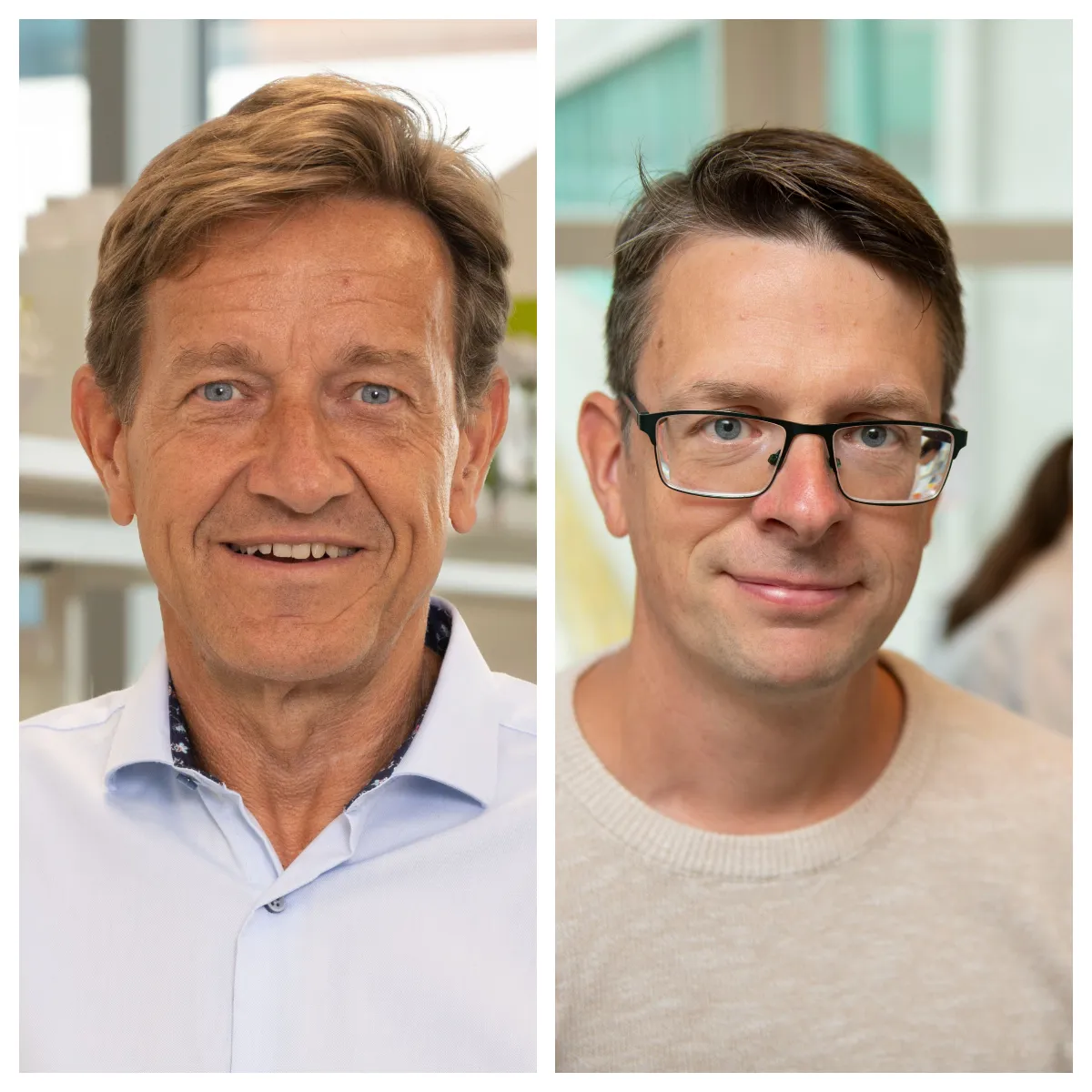Anders Kvanta's research group conducts translational studies on common retinal diseases such as age-related macular degeneration and inherited retinal degeneration (retinitis pigmentosa). The research involves natural history studies, new imaging techniques, optimization of existing treatments, as well as the development of gene therapy and stem cell-based therapies.
News
 Photo: Stefan Zimermann och Ulf Sirborn
Photo: Stefan Zimermann och Ulf SirbornPromobilia supports KI research on treatments for age-related visual impairment
Fellow-KI researchers Anders Kvanta and Fredrik Lanner have been awarded a grant of SEK 10 million from the Promobilia foundation to develop a treatment for inherited retinal diseases, such as retinitis pigmentosa (RP), and age-related macular degeneration (AMD). There is currently no effective therapies for these diseases, which are the main cause of blindness in the developed world.
